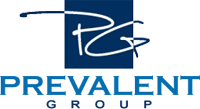At the start of a new calendar year, many of us begin to think about our long-term career goals. As with most New Year’s resolutions and goals, however, many of us also forget about those goals before the Spring thaw sets in. The reason why so many of us fail to reach our goals is that we don’t know how to set them effectively. How do you ensure that your goals will remain attainable in 2015? You’ve got to start thinking SMART.
SMART goals are Specific, Measureable, Achievable, Relevant, and Timely. Using the SMART approach to goal setting gives you a roadmap, guiding you through the steps you need to take in order to achieve your career goals. Here is how you can set effective goals this year:
“S” is For Specific
Many people set goals that look something like this, “I want to get a new job.” While that may be true, it’s not very specific. You have to know what you want to achieve if you ever hope to achieve it. A more specific goal would be, “Before the close of this calendar year, I will be interviewing with companies for a new position as a (your ideal job title).”
Notice that the specific goal is to be interviewing with companies, not to have landed the job. You can’t control the time frame in which you land your ideal position, but you can control the timeline by which you are submitting resumes and getting interviewed. Try to keep as many variables out of the equation as possible.
“M” is for Measurable
Goals should be measurable so that they can be tracked over time. They give you a specific end point, so that you know when you’ve reached your goal. If we use the original goal, the measurement might be deadlines for updating your resume, revamping your LinkedIn profile, and partnering with a recruiter.
“A” is for Achievable
Goals must be achievable. A goal that is beyond your reach will only lead to discouragement and disappointment. In order to determine whether or not your goal is achievable, ask yourself the following questions:
- What skills or resources do I need in order to reach this goal?
- Do I have enough time to reach this goal?
- How much effort is required to reach this goal?
“R” is for Relevant
Relevant goals matter to your career and have an impact on the work you do. Chasing after an irrelevant goal will be a waste of time. If, for example, you’ve set a goal to get a new certification, make sure to do your research and choose a certification that is in demand in your field.
“T” is for Timely
Without a deadline, goals can and do fall by the wayside. Giving yourself a specific timeline will help keep you on track. For extra focus, add intermediate timelines to ensure you’re taking the necessary steps to get you towards your ultimate achievement.
The professional recruiters at
The Prevalent Group can help you set and achieve SMART career goals this year. We work with some of the most innovative and forward-thinking companies in the country, and together we can help you take the next step in your career.
